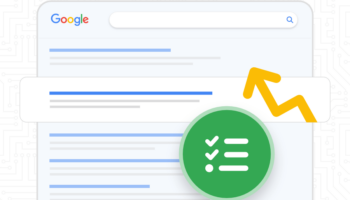After The Big Conference last week here in Portland, I had the idea of changing what I’ve been doing on Twitter a little and start following conversations about SEO on Twitter and responding to questions and concerns that people had. So I added a Twitter Search column for “SEO” and “Google Rankings” to see what would turn up.
The outcome of this experiment was at once both enlightening and alarming. The amount of misinformation that’s still out there about SEO is shocking and left me hoping that the people feeding this stuff out have as few followers as possible.
What I Observered (Not Necessarily Scientific)
#seo and “seo” seem to be used largely by SEO companies, not by ordinary people. Of the 1000s of posts I reviewed, roughly half were links to blog posts, created by and promoted by a search company (or consultant, or so-called “expert”). Approximately 10% were direct solicitations with no benefit to the reader (“Do you need free SEO advice regarding your website? Just let me know and I can help with free tools and help anytime. Thats right, free!” or this gem: “Link Builders pls add me for Link Exchange at xxx@xxxx.com.” The remaining 10% was split between foreign language tweets and legitimate questions and chatter.
“Google Rankings” was better, with a large number of terms being people talking about how to improve Google Rankings or wondering why their Google Rankings suddenly tanked. Unlike SEO, which seems to suck in black hats like a magnet, much of the chatter here seemed legitimate (if not always accurate).
SEO myths still being propagated by Twitter?
- Submitting your website to Google and Yahoo is still important (it’s not, way not!)
- META Keywords are still important. Um, no.
- The META Refresh command is an acceptable way to redirect a website. No! Use 301 redirects.
- Reciprocal links, links pages, and link directories are good link building strategies. They aren’t.
- You can buy your way into Google Organic results. Eh? Seriously, there are articles out there that seem to blur the definition of organic search and pay per click.
I also learned some fun things – “Google Slap” seems to be a trending term, and I came across the Derek Powazek SEO controversy as it was unfolding.
The key takeaway? “SEO” is a word used by those in the know, and good luck separating the wheat from the chaff if you’re using Twitter to start your education about search engines. That said, organic search is more important than ever for businesses and seeing how wild west the landscape still is re-affirmed the importance of putting out good quality and useful information out there.





